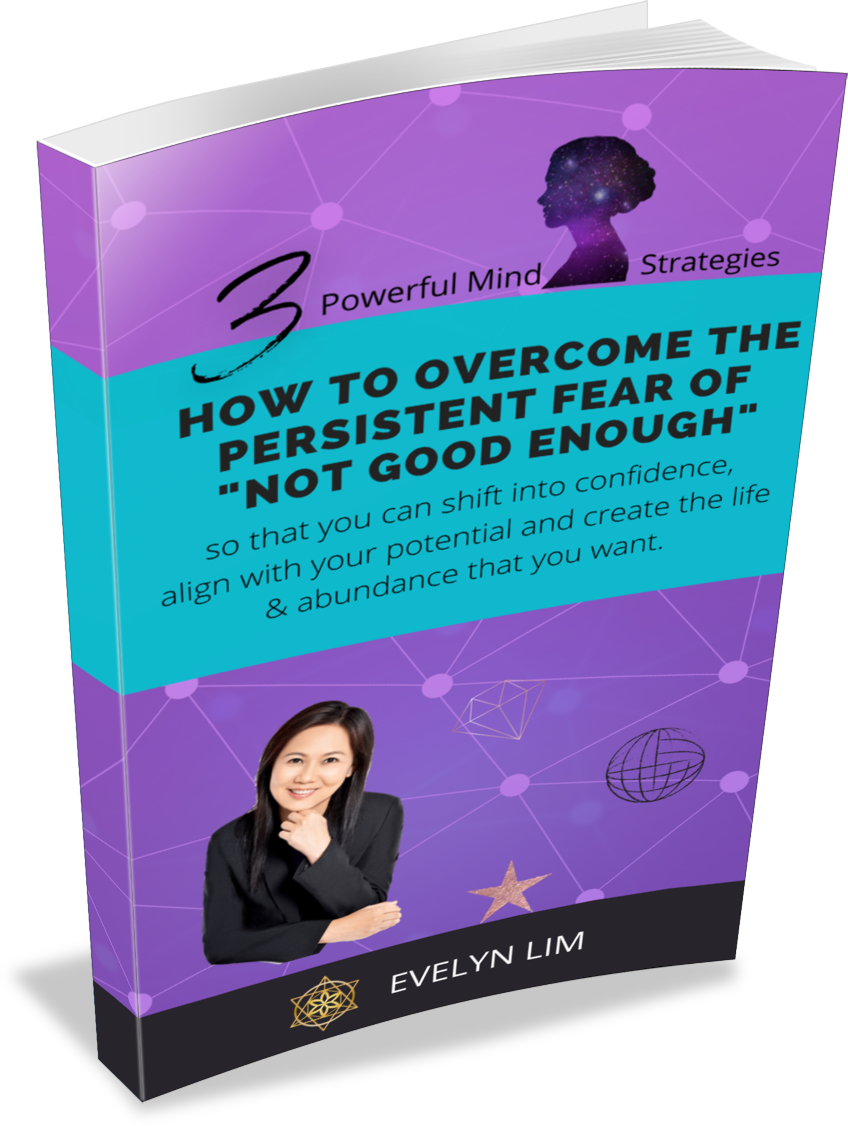How to Overcome the Feeling that “I Don’t Belong”

Do you often feel unwanted and lonely because you believe that “I don’t belong”?
Do you often feel left out in social circles?
Over time, anyone who constantly feels unwanted and experiences “not belonging” can start to feel depressed and disconnected. The heart senses the separation. A belief of “not belonging” can impact our ability to form close friendships or relationships with our spouse and loved ones.
We experience “not belonging” because we can’t seem to fit in. It may be that we are not comfortable in our own skin, to begin with. Or that we are afraid of being hurt because we hold the fear of rejection. The conviction that we are not wanted arises when we find out that friends are leaving us out from their social circles or are not asking us out.
Many of my clients who are spiritual seekers confess to feeling the same way. They feel like an “alien” on this planet especially when their beliefs, ideas and values differ from commonly held ones. Holding on to disconnection, they question what their purpose in life is.
Then, there are the introverts and empaths. Introverts need plenty of “me” space and alone time whereas empaths find it necessary to protect themselves. Within this group, those who keep to themselves excessively can also develop the belief of “being unwanted” especially where they have decided not to engage. They go through the constant conflict of not knowing what they want.
All these can contribute to the perception of “not belonging”.
Working through “I Don’t Belong”
Well, as someone who is
– an introvert
– a spiritual seeker of truths
– a conscious solopreneur
– on her self-discovery journey on planet Earth,
I have felt different from others.
There have been certainly many times when I perceive that I don’t belong. After all, not just personality differences, I have also taken an unconventional path from the ones that my close friends have chosen. I was the odd one out with not adopting the Christian religion , not working in a corporate job and refusing to buy into commonly held beliefs.
Fortunately, over the years, I have worked through enough of my issues to be okay with being different. I have learned to accept myself and to embrace the journey that I am on. Loving who I am and what I do certainly helps!
The fact is: it’s actually “normal” to be different.
After all, there are no two people completely alike.
Problems arise when we start to believe that there is something fundamentally wrong with us, leading us to cut off connection with others and feeling isolated. We may also believe that we are not worthy of relationships because we are different. For those with the problem of “not belonging”, feelings of isolation can be exacerbated due to the pandemic and needing to stay home.
Obviously, it is not healthy to hold on to feeling unwanted and the belief of “not belonging” and it is best to release them. Even though we are and feel different, it is possible to form loving relationships. We are able to see the beauty in everyone and accept that we don’t have to be all the same.
5 ways to overcome the unwanted feeling of “I don’t Belong”
1. Learn to love and accept ourselves
Understand that everyone is unique. Embrace who we are. Even if we are not as extroverted or as attractive. Or are socially awkward. Or have flaws. Or not as eloquent.
Stop relying on others to meet our needs for love. Let go of any insecure attachment. Apply the F.L.Y. principle – First Love Yourself! Loving ourselves involves accepting every part of who we are and knowing that there is nothing wrong with being different or unique. When we are able to accept ourselves, our ability to accept others – who are also unique in their own way – also increases.
2. Release any childhood abandonment issues
Addressing problems at root cause potentially involves working on releasing the belief of “I don’t belong”. Indeed, holding on to the subconscious belief of “not belonging” can create feelings of sadness, disappointment and disconnection today. The belief is usually rooted in some past issue such as childhood abandonment or rejection when we were young.
It may be that we were rejected in the past by our friends when we were in school or that we felt that there is something wrong with us when we were being singled out as different. When incidents like these happen, we may end up building a wall of protection around us. Unfortunately, this stop us from opening our hearts to others. We hold on to the unhealed hurt.
Resolving the trauma that led to creating the limiting belief is going to help! Work with a coach or therapist for healing and transformation. Read how Rose addressed feeling unwanted in her story here. Reach out to me if you need help!
3. Find hobbies that involves interaction and join social groups
As we work on releasing the past, we also join activities and social groups which offer us the opportunity to make new friends. It may mean that for a start, we are joining these activities on our own. What would help is to muster some courage and work through the discomfort of showing up alone.
It may be that we need to learn social skills and how to improve our relationships with others. Examples include how to make eye contact, practice empathy and active listening. We can also find a role model to learn from.
Great sites for joining groups to check out: meetup.com or eventbrite.com.
4. Create safety around belonging
It would be helpful to create safety by surrounding ourselves with like-minded people or those who are kind and caring.
If feelings of isolation start to creep up, call up old friends with whom we feel comfortable with and arrange for a meet-up.
Search also for groups with similar traits to join – such as people who are introverts, sensitive, empaths etc.
5. Align with purpose
Finding a purpose can potentially offer more meaning in life and create a sense of belonging when we are aware that our contribution makes a difference to others. Even if we don’t know what our big why is, we can start with doing something small. For example, volunteering to deliver food to the homeless or spending time with an an elderly neighbour down the street.
From “Not Belonging” to “I Belong”
Ultimately, healing any abandoned or rejected parts of ourselves leads us back into wholeness. We embrace every part of who we are – even though we appear to be different from others. While we appear to be different, we also understand that we are not very different in our needs for love, connection, belonging and acceptance.
To let love in, we need to open our hearts. We are worthy of having close relationships. One affirmation that I like to make…
It is safe to show up as my authentic self and to also, belong.
May the affirmation and tips in this article work for you too!
Love and abundance always,
Evelyn


